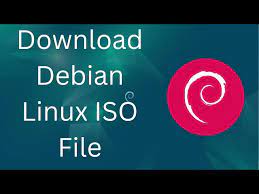Unleashing the Potential of Open Source Software Development
The Power of Open Source Software Development
Open source software development has revolutionised the tech industry, empowering collaboration, innovation, and accessibility like never before. Unlike proprietary software, open source projects are built on the principles of transparency, community-driven development, and shared knowledge.
One of the key strengths of open source software lies in its collaborative nature. Developers from around the world can contribute to projects, offering their expertise and insights to improve code quality and functionality. This collective effort results in software that is continuously refined and updated by a diverse community of contributors.
Furthermore, open source software promotes innovation by allowing developers to build upon existing codebases without restrictions. This fosters creativity and experimentation, leading to the development of cutting-edge technologies and solutions that benefit users across various industries.
Accessibility is another hallmark of open source software development. By making source code freely available to the public, open source projects empower users to customise and modify software according to their needs. This level of flexibility not only enhances user experience but also promotes a culture of learning and skill development among developers.
Security is also a significant advantage of open source software. With many eyes scrutinising the code for vulnerabilities, issues can be identified and addressed promptly, resulting in more secure software for users.
In conclusion, open source software development represents a paradigm shift in how technology is created and shared. By embracing collaboration, innovation, accessibility, and security as core tenets, open source projects continue to shape the future of software development in a dynamic and inclusive manner.
Essential Tips for Successful Open Source Software Development
- Choose the right licence for your open source project to define how others can use, modify, and distribute your code.
- Encourage collaboration by hosting your project on popular platforms like GitHub or GitLab.
- Document your code thoroughly to make it easier for other developers to understand and contribute.
- Follow best practices for version control using tools like Git to track changes and manage code updates effectively.
- Be responsive to feedback from the community and actively engage with users and contributors to build a strong open source community around your project.
- Adhere to coding standards and conventions to ensure consistency across contributions and maintain the quality of the codebase.
Choose the right licence for your open source project to define how others can use, modify, and distribute your code.
When embarking on open source software development, selecting the appropriate licence for your project is crucial as it determines the terms under which others can utilise, alter, and distribute your code. By carefully choosing a licence that aligns with your project’s goals and values, you can establish clear guidelines for the community regarding how they can interact with your software. This decision not only fosters transparency and collaboration but also ensures that your project’s integrity and ethos are upheld throughout its lifespan.
Encourage collaboration by hosting your project on popular platforms like GitHub or GitLab.
To maximise collaboration in open source software development, consider hosting your project on popular platforms such as GitHub or GitLab. These platforms provide a centralised space for developers to contribute, review code, and track issues efficiently. By leveraging the features offered by these platforms, you can streamline the collaborative process, attract a wider community of contributors, and foster a more inclusive and productive development environment for your project.
Document your code thoroughly to make it easier for other developers to understand and contribute.
In the realm of open source software development, a crucial tip is to meticulously document your code. By providing clear and comprehensive documentation, developers can easily grasp the functionality and structure of the codebase, making it more accessible for others to understand and contribute effectively. Well-documented code not only facilitates collaboration within the community but also ensures that the project remains sustainable and scalable in the long run.
Follow best practices for version control using tools like Git to track changes and manage code updates effectively.
In the realm of open source software development, adhering to best practices for version control is paramount to ensuring the smooth evolution of projects. By utilising tools such as Git, developers can meticulously track changes, manage code updates efficiently, and collaborate seamlessly with team members. This approach not only enhances transparency and accountability within the development process but also facilitates the integration of new features and bug fixes with precision. Embracing robust version control practices like those offered by Git empowers developers to maintain the integrity and coherence of their codebase while fostering a collaborative environment conducive to innovation and progress.
Be responsive to feedback from the community and actively engage with users and contributors to build a strong open source community around your project.
To thrive in open source software development, it is crucial to be responsive to feedback from the community and actively engage with users and contributors. By listening to the needs and suggestions of the community, developers can build a strong open source community around their project. This collaborative approach fosters trust, encourages participation, and leads to the continuous improvement of the software through shared knowledge and diverse perspectives. Embracing feedback and engaging with users not only enhances the quality of the project but also cultivates a supportive environment where innovation flourishes.
Adhere to coding standards and conventions to ensure consistency across contributions and maintain the quality of the codebase.
Adhering to coding standards and conventions is a fundamental tip in open source software development. By following established guidelines, developers can ensure consistency across contributions, making it easier for team members to understand and collaborate on the codebase. Consistent coding practices also help maintain the overall quality of the software, as well-written and organised code is easier to debug, maintain, and scale. By upholding coding standards, open source projects can foster a cohesive development environment that promotes efficiency, reliability, and long-term sustainability.




